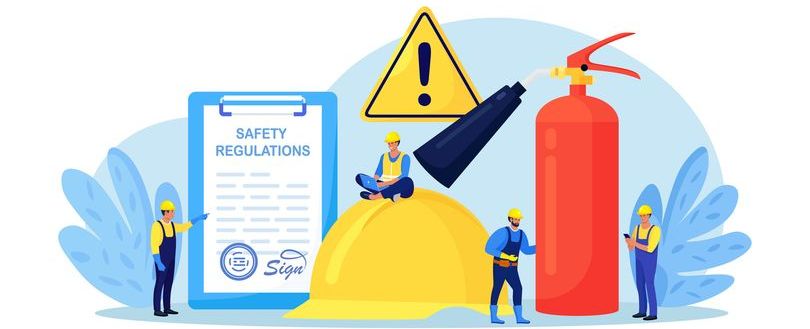
Top 10 Fire Safety Tips for Businesses
Like it? Share it!
16 September 2024
Ensuring fire safety in the workplace is not only a legal requirement but also a critical aspect of protecting your employees, assets, and business continuity. Fires can cause devastating damage in just a few minutes, making it essential for every business to take proactive measures. Here are the top 10 fire safety tips that every business should implement to safeguard their premises and people.
1. Conduct Regular Fire Risk Assessments
A fire risk assessment is the foundation of your fire safety strategy. It involves identifying potential fire hazards, assessing the risks they pose, and implementing measures to reduce or eliminate those risks. This should be a dynamic process, regularly reviewed and updated to reflect any changes in your business operations or premises.
2. Install and Maintain Fire Detection Systems
Early detection is crucial in preventing fires from spreading. Ensure your business is equipped with a robust fire detection system, including smoke and heat detectors. Regularly test and maintain these systems to ensure they are in good working order, and replace any faulty equipment immediately.
3. Ensure Easy Access to Fire Extinguishers
Fire extinguishers are your first line of defence in case of a fire. Place them strategically throughout your premises, particularly in areas with higher fire risks, such as kitchens, storage rooms, and near electrical equipment. Make sure all employees know where the extinguishers are located and how to use them effectively.
4. Train Employees on Fire Safety Procedures
Your employees play a vital role in maintaining a safe work environment. Provide regular fire safety training to ensure they know how to respond in case of a fire. This training should include how to use fire extinguishers, the importance of keeping exits clear, and the procedures for evacuating the building safely.
5. Keep Fire Exits and Escape Routes Clear
Fire exits and escape routes must be easily accessible and free of obstructions at all times. Regularly check these areas to ensure they are not blocked by furniture, equipment, or storage. In an emergency, a clear path to safety can make all the difference.
6. Implement an Effective Evacuation Plan
An effective evacuation plan is essential for ensuring everyone can exit the building quickly and safely in case of a fire. Your plan should include clearly marked escape routes, designated assembly points, and procedures for accounting for all employees and visitors after evacuation. Regular fire drills should be conducted to ensure everyone is familiar with the plan.
7. Regularly Inspect Electrical Equipment
Faulty electrical equipment is a common cause of workplace fires. Regularly inspect all electrical appliances, wiring, and outlets to identify potential hazards. Ensure that all electrical equipment is maintained properly and that any damaged or malfunctioning items are repaired or replaced promptly.
8. Store Flammable Materials Safely
Flammable materials, such as chemicals, cleaning supplies, and certain office supplies, should be stored in designated areas away from sources of ignition. Use appropriate containers and storage solutions to minimize the risk of these materials igniting.
9. Enforce a No-Smoking Policy
Implementing and enforcing a strict no-smoking policy can significantly reduce the risk of fire in your workplace. Designate specific smoking areas outside the building, well away from entrances, exits, and flammable materials. Ensure that cigarette butts are disposed of safely in appropriate containers and empty the containers regularly.
10. Collaborate with Fire Safety Professionals
Finally, don’t hesitate to seek the expertise of fire safety professionals. They can provide valuable insights into your fire safety practices, help you identify potential risks, and recommend the most effective solutions. Regular consultations with these experts can ensure that your fire safety measures are up-to-date and compliant with current standards and regulations.
By implementing these fire safety tips, you can create a safer workplace and reduce the risk of fire-related incidents. Remember, fire safety is an ongoing process that requires regular attention and proactive management. By staying vigilant and committed to best practices, you protect not only your business but also the lives of your employees and customers.
Our eNews provides regular insight into industry trends, news headlines, and product and service information. For more articles like this Subscribe to our enews.
Related news
-
Record Rise in E-Bike and E-Scooter Fires Across London
28 January 2026
Related resources
-
Passenger Service Vehicle - Guidance Note
05 September 2023
